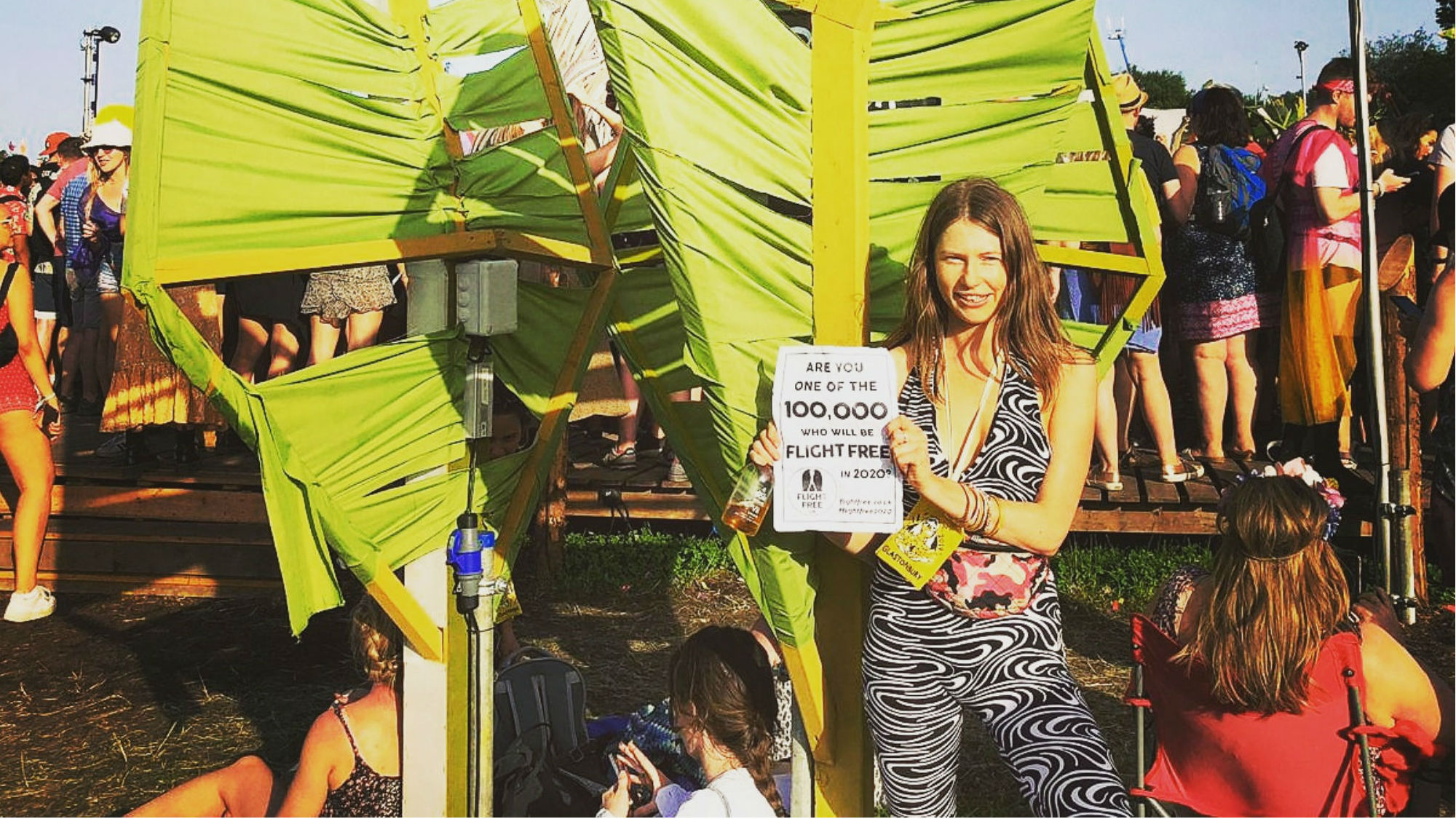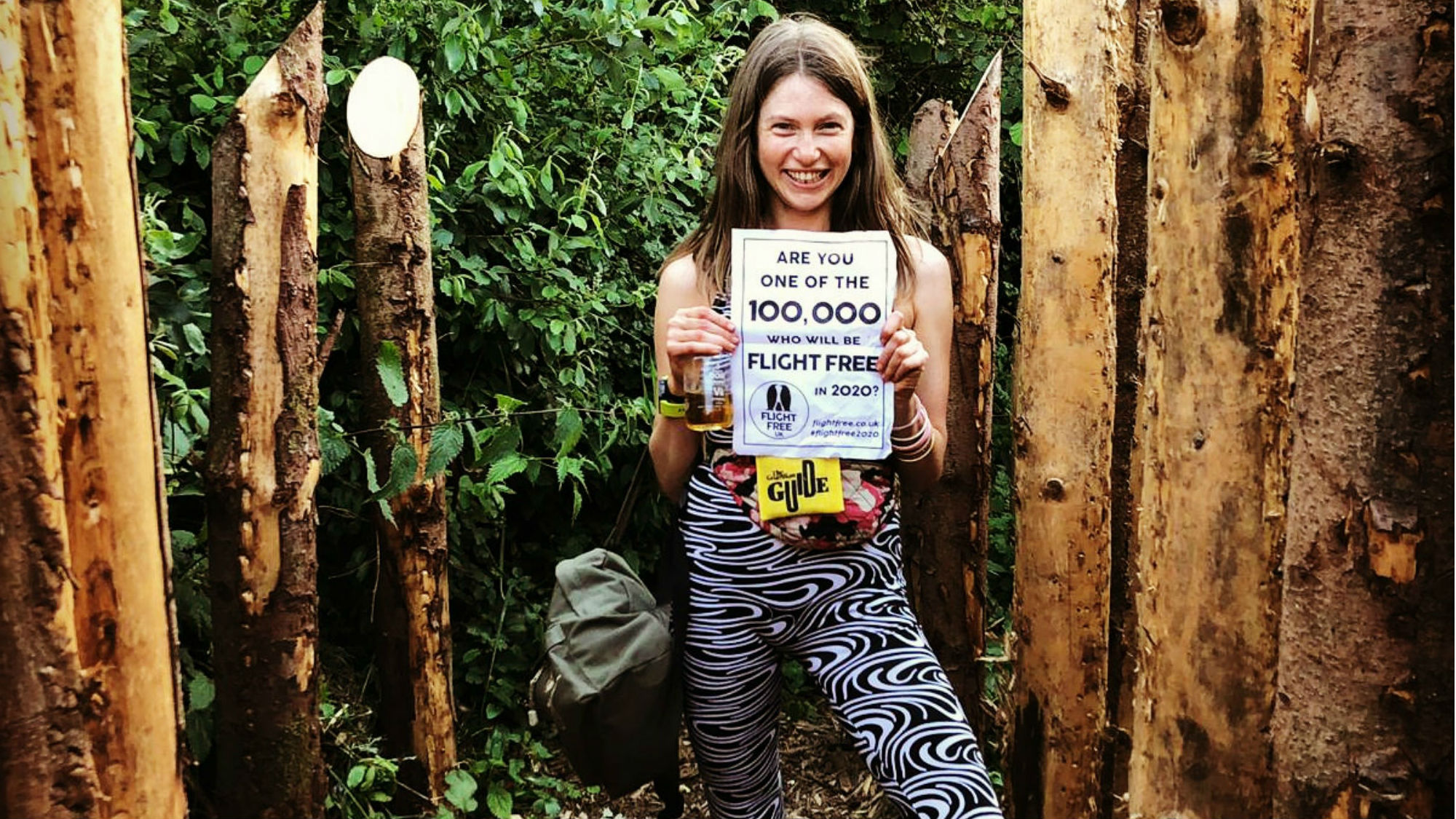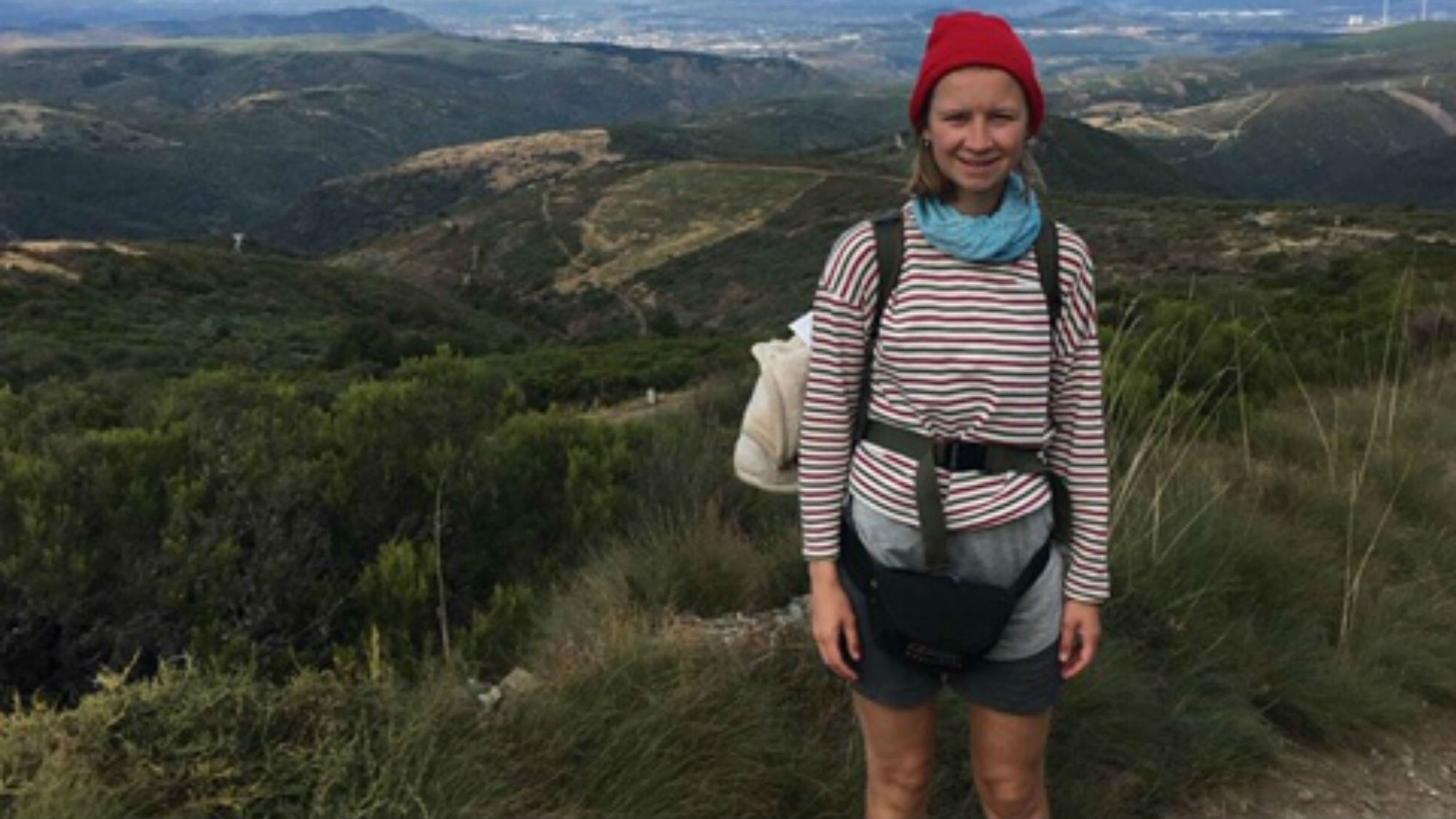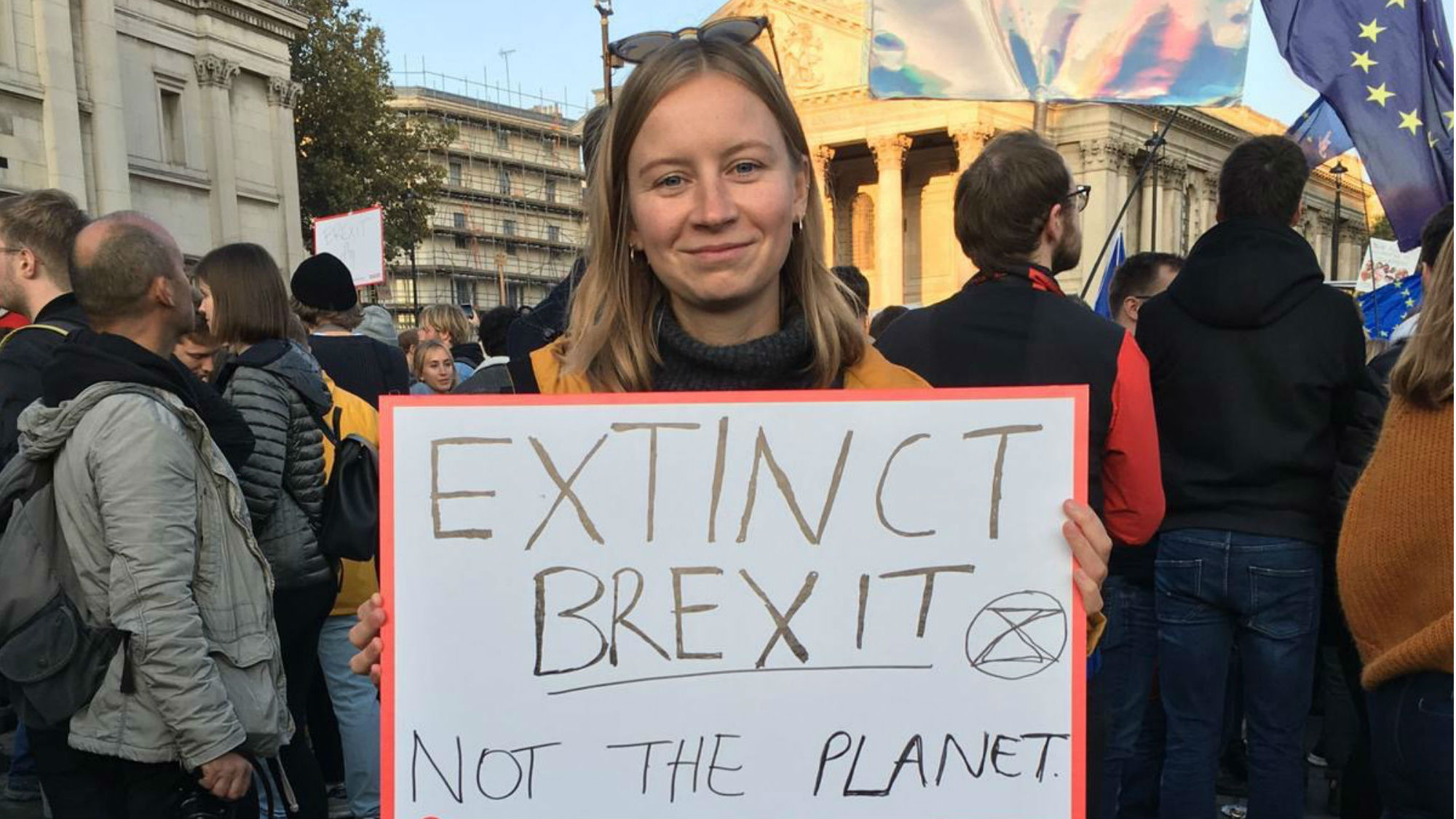World Environment Day: ‘We gave up our corporate careers to become climate-change activists’
On World Environment Day, Pippi Durie and Amy Luck share their stories of quitting their city jobs and devoting themselves to environmental passion projects – and urge us to follow their new pollution-free paths

Celebrity news, beauty, fashion advice, and fascinating features, delivered straight to your inbox!
You are now subscribed
Your newsletter sign-up was successful
On World Environment Day, Pippi Durie and Amy Luck share their stories of quitting their city jobs and devoting themselves to environmental passion projects – and urge us to follow their new pollution-free paths
The planet is in a state of emergency. Alarmingly, global temperatures are on track to increase by at least 3°C towards the end of the century – twice what climate experts have warned is the limit to avoid severe economic, social and environmental consequences. The reality is inescapable, unless the world acts fast.
For five years, Pippi Durie, 28, was a high-earning investment banker for Barclays in London. After becoming increasingly concerned about environmental issues, she handed in her notice last September, applied for an environmental policy masters degree (which she hopes will lead her to working in a green think tank) and starting volunteering for the Flight Free 2020 campaign.
Amy Luck, 27, quit her job as a corporate public relations manager and joined forces with two friends to create a #NoBeef campaign, which shows overwhelming evidence that dropping beef means you cause 95% less greenhouse gas emissions, 85% less water usage and 95% less land burden. Now a consulter, Amy is currently researching land use for Imperial College London and works part-time as a researcher for an upcoming climate change film. She also works closely with Extinction Rebellion to demand politicians go further and faster than ever before.
What these women are doing is important, and these are their stories…
Pippi: 'I’m a volunteer for Flight Free 2020'
'Working an 8am to 7pm job as an investment banker was super challenging, but I didn’t feel fulfilled because I didn’t see an end goal. I wasn’t working towards anything – apart from having more money.
I wanted to spend my time helping the planet, and those affected by the climate crisis, rather than going through the motions of a numbers-based job. I thought, I’m at an age where I don’t have anyone dependent on me, so if I’m going to do it, now is the time. And so, I took a leap of faith and handed my notice in. It was an anxious time for me, because I had applied to do a masters degree in environmental sciences at King’s College London, but I didn’t know if I’d got in until after I quit.
Celebrity news, beauty, fashion advice, and fascinating features, delivered straight to your inbox!
The year-long course, which started last September, is called environment politics and globalisation, and I do three days of lectures and seminars, and I have to start writing a dissertation in the next few weeks. It was weird going back to learning. I remember sitting in a lecture hall in Newcastle University - I studied Economics - and not really taking it in. Now, I really want to learn, and I’ve gone from writing emails to writing 2,000-word essays. I’ve got a student loan that covers the course fees, but nothing for living, so I’ve moved into my boyfriend’s room to half my rent. For income, I waitress at a restaurant and at events for a catering company.
I’m starting to adapt to not having disposable income – which just means being able to afford less. I don’t go out for dinner as much and I buy second-hand clothes. It’s strange; I’ve gone from having no time and lots of money, to lots of time and less money. But now I appreciate my time a lot more in the day. I'm able to attend long yoga classes and read books.
Extinction Rebellion has played a big part in my interest in the climate crisis. I went to the protests last October and I’ve been to some meetings since. I’m also a volunteer for the Flight Free 2020 campaign. As I became more interested in the climate crisis, I started to consider my own carbon footprint, and found that flying is terrible for the planet (plane engines emit noise and gases, such as carbon dioxide, which contribute to global heating). I discovered this campaign and emailed them, asking if I could help. I created content for their social media platforms and reached out to charity groups asking if they would sign up to the campaign. More recently, I did two presentations, one at a climate change event and one at Mr Porter, the men’s fashion website. I’ll keep doing more events with them this year.
My parents were slightly apprehensive when I told them I wanted to quit my job, as I had a career as well as financial security. But I don’t regret leaving the corporate world at all, and I don’t see my life change as a sacrifice. I appreciate the opportunity I have to try to help the planet.'

Amy: 'My #nobeef campaign is helping reduce our impact on the planet'
‘I’ve always loved nature, animals and conservation, but I couldn’t see a way to make it my career after I graduated from Birmingham University, having read biological sciences with zoology, in 2014.
Instead, I got a job as a headhunter, as the job allowed me to live and work in London with my friends. I learnt how to stand up for myself but it was a corporate world, and not personally satisfying at all. I moved on to a role in public relations, selling for brands like Cadbury on the consumer side, but it didn’t take long for me to realise the role was meaningless to me. I moved to the health and tech side of the company but still felt underwhelmed and depressed by it all, so I handed in my notice after six months.
I thought I'd landed my dream job at The Wellcome Trust, a global health charity, as there was an opportunity to complete a graduate programme while working. I was fortunate enough to travel to Africa and South America with the vaccines team, and during this time I learnt more and more about the growing impact of climate change, and how it was affecting people all over the world.
I left to do a masters degree in public and global health at the end of 2017. I was desperate to try to find a way to help more people. But rather than rushing into another job once the year was complete in October 2018, I decided to get some headspace for a month and think about how I could help the climate crisis with my skills so far. I decided to do the Camino de Santiago - a pilgrimage route across France and Spain. Today, people do it to have a break from life, while still having purpose – I walked 30km every day!

When I came back to London I met up with a friend, Matthew Shribman, who told me he was thinking of starting a campaign around beef. We sat down and came up with concept of the #NoBeef campaign. We wanted to come up with a way that people could feel like they were doing something positive for the planet, and ditching beef is the single biggest way to reduce your impact on it.
However, we then decided to target universities and schools, asking them to drop beef and lamb (sheep grazing also contributes to greenhouse gas emissions) from their menus. We are trying to create a student ambassador network, inspiring young people to take the campaign to those in charge and persuade them to stop supplying it, as their voices are more impactful than ours. The University of Cambridge’s central catering team has agreed to reduce the beef and lamb they sell, and this year will see us contact many more institutions across the country.
#NoBeef is entirely voluntary, and we recently set up an umbrella organisation to sit on top of the campaign, called Planet A. We held an event in October 2019 as part of the London Extinction Rebellion protests, and allocated a tree to every British MP, to try to get them to commit to reforesting and environmental targets. I've found being part of the Extinction Rebellion protests comforting, because you are around like-minded people who want to make the same changes. We are just concerned, passionate people who want the government to listen.
My family supports my involvement with Extinction Rebellion, but I’ve definitely been mocked along the way (my mum calls me ‘Greta’). My friends can sometimes think I'm judging their lifestyles, but I'm not. For me, it's important to make individual lifestyle changes to limit my impact on the planet (changing my diet to mainly vegan, avoiding fast fashion and opting for greener modes of transport), but I don't expect everyone to be able to do so to this extent. If everyone in the world makes even the smallest lifestyle change, it sends a strong message to those in power that unanimously we all want a positive future for the planet. Ultimately, it is the politicians who need to make the biggest changes to protect our planet, not the individual.'

Olivia – who rebranded as Liv a few years ago – is a freelance digital writer at Marie Claire UK. She recently swapped guaranteed sunshine and a tax-free salary in Dubai for London’s constant cloud and overpriced public transport. During her time in the Middle East, Olivia worked for international titles including Cosmopolitan, HELLO! and Grazia. She transitioned from celebrity weekly magazine new! in London, where she worked as the publication’s Fitness & Food editor. Unsurprisingly, she likes fitness and food, and also enjoys hoarding beauty products and recycling.